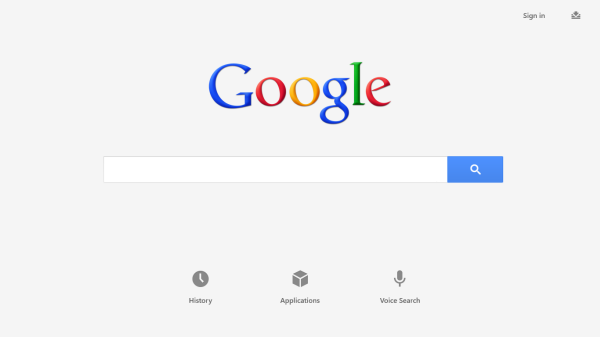One of my least favorite design trends of the last few years is the “infinite scroll.” I’d like to eventually reach the end of the page, especially if the content I’m looking for – contact information and similar site or corporate information – is going to be found there. Having to keep scrolling on and on past 78 sections of other material in and endless stream is frustrating and, I think, a waste of time for the user.
I get that it’s “post web design” web design, meant to appeal to people increasingly accustomed to scrolling on phones and tablets through Twitter and Facebook streams. And there’s some cases where sites publish so much content that trying to fit it all into a traditional design template just isn’t feasible. It doesn’t mean I have to like it.
Hi, I’m a grumpy old man on the internet.
The other day I was running a YouTube search for a particular “Doctor Who” clip and was having trouble finding it. As I browsed the results of the search I realized that site had introduced infinite scrolling within search results as well as on its homepage. But it was the first one that got my attention. To confirm I hunch I went over to Google and ran a search and found that no, search result pages do not feature similar endless scrolling.
It seems to me, though, that would be the one place where such design would make sense. Just as on YouTube SERPs, being able to just kind of keep going through the listings without the artificial page break would seem to be the better user experience since you can scroll and scroll until you find what you’re looking for.
From Google’s own perspective, though, that probably doesn’t make much sense. Not only is there ad revenue at stake – Page 1 placement comes with a premium price – but there’s something more intangible but no less important: Cache.
There’s status attached to appearing organically on Page 1. 80% or more of searchers click one of the top three results for whatever they’re searching for and 75% never visit Page 2 to see what’s going on there. So there’s a lot of reputational currency in appearing in the first 10 organic results that infinite scrolling would get in the way.
That means that, even outside of the financial component, Google is maintaining a “click for more” approach for search results largely because it keeps companies and content producers hungry and scrapping. It keeps Google in control to some extent because it knows how people are using the site and sees value in continuing a competition that seemingly no longer needs to exist. “Appearing at the top of Page 1” doesn’t have the same bluster when it’s all Page 1.
If you’re ever wondering why Google hasn’t adopted the single worst and yet pervasive design trend on the web it might be because it likes encouraging competition. It reminds me of how on “Arrested Development” George Sr. had Michael and GOB keep fighting so he could video tape it and sell the results. When you keep people scrapping for attention, you maintain control of the landscape.
Chris Thilk is a freelance writer and content strategist who lives in the Chicago suburbs.

Interesting point! The paginated results make people compete to be on page 1. With no page 1, there is less competition!